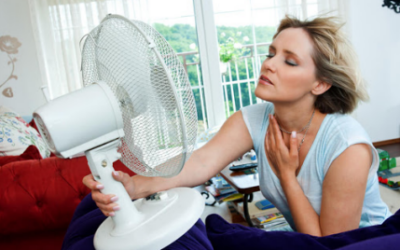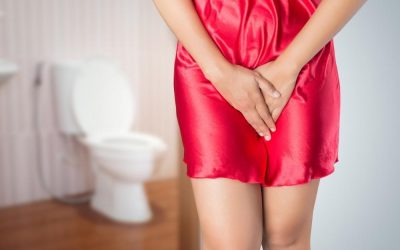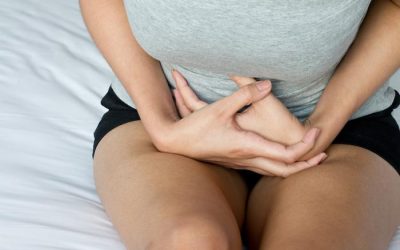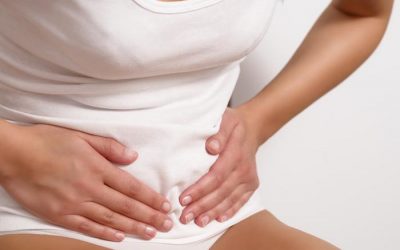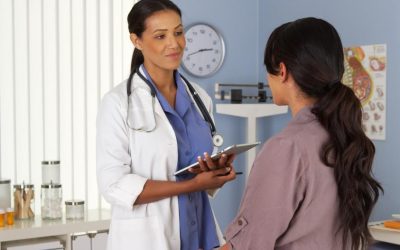Blog Articles
Preventing Weight Gain During Perimenopause and Menopause
Unfortunately many women gain weight during Perimenopause, on average gaining about 3-5 pounds per year. The loss of estradiol contributes to the change in metabolism and a shift in location of adiopse cells.
Non Hormonal Management of Menopausal Symptoms
I have listed a few things that can get you started with non hormonal management of some of the more common symptoms of menopause transition. Nutrition. So important to focus on the foods you choose to eat, limiting the things that will trigger your hot flashes...
Menopausal Symptoms
There is much to cover with this topic and I will outline some of the more common facts and concerns. First, menopause is defined as one year without any periods and the average age is 51. Peri-menopause is the time before this which can be quick (1 day) or can last...
How to Know if Your PMS Symptoms Are Normal
Once a month, like clockwork, you can expect the telltale signs that your period is about to start. You may not have the exact same symptoms as the lady next door, your friend at work, or even your mom, but they tend to fall into the same category and include some...
How Does PCOS Affect Fertility?
Approximately 1 in 10 American women suffer from polycystic ovary syndrome (PCOS). This hormonal imbalance leads to many symptoms, such as weight gain, facial hair, adult acne, and, sometimes, infertility. If you’re having trouble getting pregnant and have PCOS, you...
Is Incontinence Normal After Birth?
Pregnancy makes many changes in your body, including ones that can lead to urinary incontinence. While many women deal with incontinence after birth, you can take steps before, during, and after pregnancy to support your urinary system. Donna H. Hagberg, MD supports...
Starting Birth Control for the First Time? How to Choose the Right Contraception Method
If you’re starting birth control for the first time, the dizzying array of options may seem overwhelming at first. The good news is that there’s usually an option that fits every lifestyle and meets every goal. And our job is to help you find the right one. At our...
Tips for Keeping Your Body in Balance to Prevent Vaginitis and Vulvitis
Do you remember the lesson from science class about how the pH of something determines how acidic or basic it is? While you may not go around thinking about the pH of many things, you might want to start thinking about your vagina’s pH balance. Keeping your body in...
What Causes Fibroids (And What Can I Do About It)?
If you’re a woman in your 30s to 50s, you have a good chance of getting fibroids — benign growths that develop from fibrous tissue in your uterus. While some women don’t even know they have fibroids, other women suffer from pain and heavy periods each month. If you...
When it’s Time to See a Doctor about Pelvic Pain
While many women experience pelvic pain during their periods or during pregnancy, it’s also not uncommon to have pain during other times of life. Pelvic pain is considered “chronic” when it persists regularly for longer than six months. Sometimes the pain can be mild...
Living with PCOS
The first thing you may notice is that your menstrual cycle is off its normal schedule, or you may experience a sudden bout of the acne that hasn’t plagued you for years. You might be inclined to dismiss these situations as random occurrences; however, when combined...
Coping with Menopause Symptoms While Traveling
Let’s face it – there’s never a good time to deal with the unpleasant symptoms of menopause. But while you're traveling? That's a very inconvenient time! You invest a lot of energy and money into planning a trip. You don’t want...
When do Ovarian Cysts Require Medical Intervention?
It is estimated that most women develop an ovarian cyst at some point in their lifetime, although only 8-18% are reported, since many ovarian cysts cause no symptoms and resolve on their own. Some 5-10% of women will have exploratory surgery to investigate ovarian...
Is PMS Hereditary?
An impressive 90% of women in the United States report some symptoms of PMS, or premenstrual syndrome, that range from mild cramps to severe mood swings. Though most women soldier through with only mild discomfort each month, some are severely affected by PMS, which...
Urinary Incontinence: It’s More Common Than You Think
They say that misery loves company, but incontinence isn’t something we’d wish on anyone. Yet millions of women suffer from incontinence, which means you’re not alone. In fact, approximately 17% of adult women suffer from an overactive bladder and more than 12 million...
Will endometriosis prevent me from becoming pregnant?
Women with endometriosis who want to have children often live in fear that they’ll never be able to conceive. Fortunately, with today’s advances in research and a better understanding of the condition than in past decades, it’s possible to have a baby even if you’ve...
Sex After Menopause Doesn’t Have To Be Painful
Each year millions of women reach menopause, a time when your ovaries stop making estrogen and slow down their production of other hormones. This marks the end of the reproductive period of a woman’s life and is often marked by bothersome and uncomfortable symptoms...
Contact Dr. Hagberg
Suite 102
Cos Cob, CT 06807
Office Hours:
Monday-Thursday: 8:30 AM - 4:30 PM
Friday: 8:30 AM - 3:00 PM
Saturday-Sunday: Closed
Services
Our office is accredited to perform Ultrasounds from the American Institute of Ultrasound in Medicine. (AIUM Accreditation)



